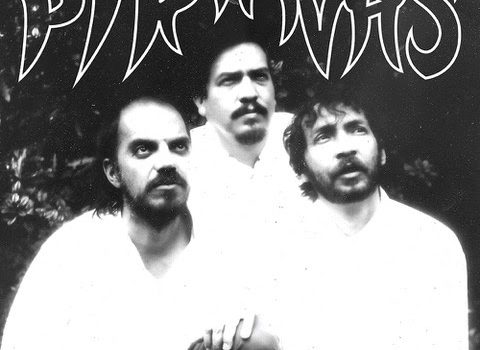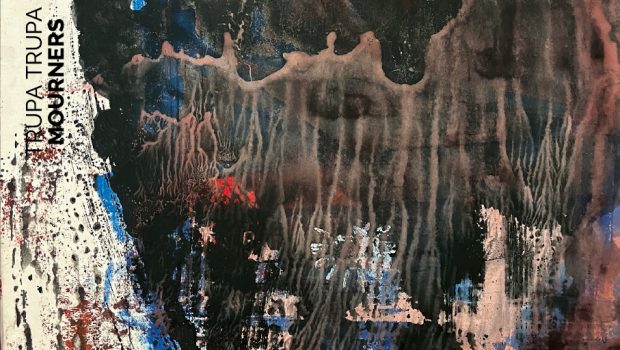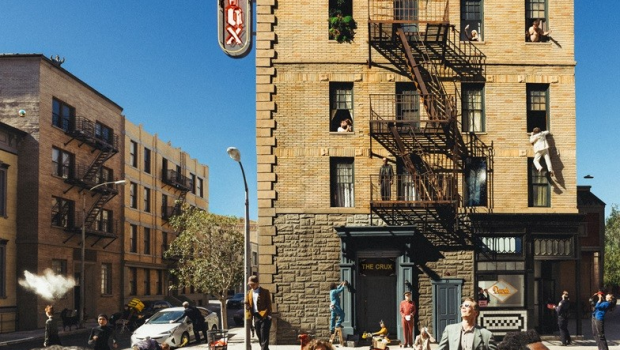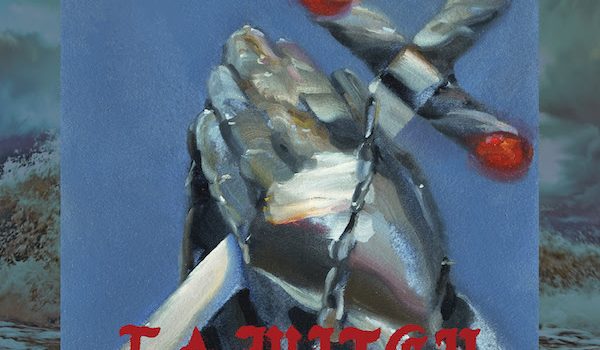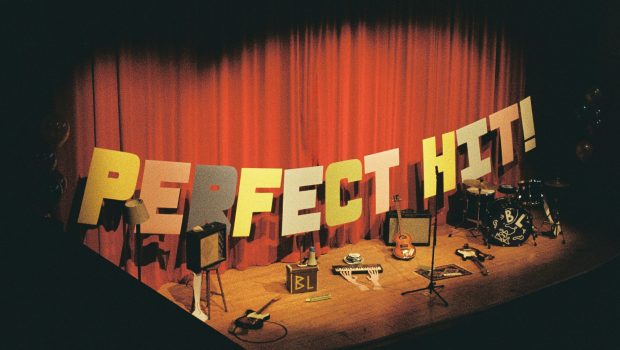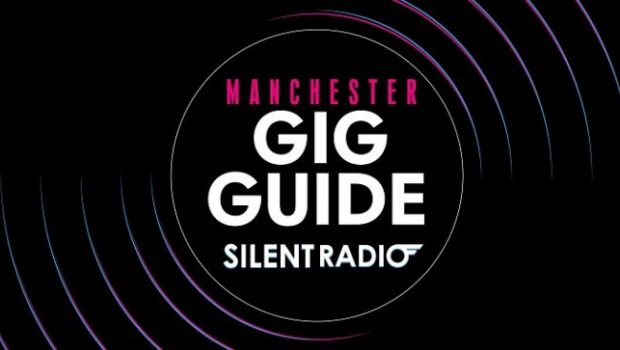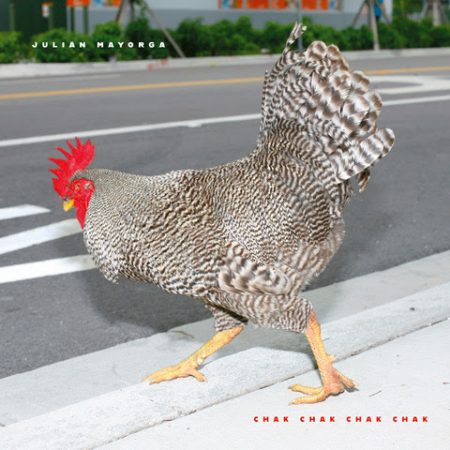 What a joy it is to discover a new favourite record label. It can open entire new colourful worlds of sound. Over the past month alone, Glitterbeat Records has offered up an extraordinary collection of new releases, a veritable magic pick and mix. From Turkey has come the psych rock mayhem of BaBa ZuLa’s ‘İstanbul Sokakları (Streets of Istanbul)’ replete with electric saz, electronics, Turkish percussion, deep bass and dual vocals. On tak: til, the label’s instrumental imprint, there was the sublime ‘3’ by Saagara, a collaboration between Polish producer and multi-instrumentalist Wacław Zimpel and four virtuosic musicians from the Carnatic musical tradition of southern India: percussionists Giridhar Udupa (ghatam), Aggu Baba (khanjira) and K Raja (thavil) and violinist Mysore N. Karthik. They produce a mesmeric blend of dense rhythms and electronic patterns. What is remarkable is that both albums, along with most of the label’s back catalogue, mix such a wide array of sounds and traditions yet maintain uniformly high standards.
What a joy it is to discover a new favourite record label. It can open entire new colourful worlds of sound. Over the past month alone, Glitterbeat Records has offered up an extraordinary collection of new releases, a veritable magic pick and mix. From Turkey has come the psych rock mayhem of BaBa ZuLa’s ‘İstanbul Sokakları (Streets of Istanbul)’ replete with electric saz, electronics, Turkish percussion, deep bass and dual vocals. On tak: til, the label’s instrumental imprint, there was the sublime ‘3’ by Saagara, a collaboration between Polish producer and multi-instrumentalist Wacław Zimpel and four virtuosic musicians from the Carnatic musical tradition of southern India: percussionists Giridhar Udupa (ghatam), Aggu Baba (khanjira) and K Raja (thavil) and violinist Mysore N. Karthik. They produce a mesmeric blend of dense rhythms and electronic patterns. What is remarkable is that both albums, along with most of the label’s back catalogue, mix such a wide array of sounds and traditions yet maintain uniformly high standards.
This week’s Glitterbeat release, Julián Mayorga’s ‘Chak Chak Chak Chak’ is equally stunning. A Madrid-based Columbian artist producing absurdist post-cumbia infused psychedelia, his album’s eleven tracks tingle with energy, spurred by rhythms played on unlikely found instruments such as frying pans, mortar and pestle, knives and plates. He also uses traditional local percussion instruments such as tambora and gaucharaca as well as repurposed objects including large oil drums. His angular guitar playing bears the hallmarks of Marc Ribot and Arto Lindsay. Throw in circuit bent electronics and rapid-fire vocals, hollering and eery harmonies for a sound that is frenetic and unique. While his music can be firmly placed in the avant-garde, it does retain a pleasing element of accessibility.
The sound is surreal and the same applies to the translated lyrics which also display a distinct political edge and take inspiration from the fables produced by Latin American writers like Juan Rulfo and Maria Luisa Bombal as well as the British poet Brian Catling. This is especially apparent on the opening track, ‘No te comas las blaquísimas mofetas / Don’t eat the white skunks’ which in addition to providing the album’s title has some colourful and pointed imagery (“eat the rich who are few and whitey… fervent leeches / scavenging moneylenders / greedy sons-of-sows and triple-triple son of a bitch / and there’s the occasional nincompoop.”) While the meaning is only apparent via the translations that accompany the release, what instantly snares the attention is the ramshackle rhythms, electronic blasts and swirls and hyperactive backing harmonies. It sounds unlike anything else but while being unfamiliar has enough depth to transcend mere novelty.
In common with a few tracks on ‘Chak…’, ‘La muerte del Perro / The death of the Dog’ displays the rhythmic mishmash of ‘Rain Dogs’ era Tom Waits. ‘Sueño con culebras / I dream of snakes’ uses circuit bent electronics to excellent effect, creating a state of heightened loss of control in its tale inspired by the Cuban musician Silvio Rodriguez’s song ‘Sueno con Serpientes’ about the nature of evil. Culebras is the Columbian slang term for money debts and the urgency of the situation is illustrated in the line about snakes “stabbing me in the back at the end of the month.”
There is a brutal bass rumble to ‘El Vorrh / The Vorrh’ while the percussion makes a right racket as Mayorga hoarsely screams and ventures into the forest in search of answers. In contrast, ‘Tres tristes transeuntes / Three sad passers-by’ begins with beguilingly gentle vocals before his ranting races the frantic percussion.
‘El dia en que el Tolima se hundio hasta el fondo del mar / The day Tolima sank to the bottom of the sea’ is gleefully odd in its dose of electronics, guitars and percussion that knits together leftfield experimental sounds into a coherent whole. The title references the area of Columbia from which Mayorga comes and namedrops his friends and family. In another far from everyday tale, it tells of waters rising and covering Columbia. Amidst the confusion and bureaucracy that takes place under water, the people mutate into starfish.
Starting like a low-flying helicopter, there is a defiance to ‘¿El trabajo yo para qué lo quiero? / What do I want to work for?’ in which he demands “time to make poetry / to sow weeds / to pray to a dead man”. The electronics conspire to create a sense of a fever dream. ‘Semolina’ is a Latin cover of a Residents song and provides ample evidence of how they have influenced Mayorga’s sound.
The woozy harmonies and broken-down cumbia of ‘Los rolos angloparlantes / The English-speaking Rolos’ suggests a critique of English language cultural imperialism and patronising attitudes, the reference to “English speaking monkeys” being a delight and slang for blonde people.
‘Chak…’ concludes with the archetypically frantic ‘Arda la ciudad cuando arrecie el monte / Let the city burn when the mountain rages’ with Mayorga spitting out multiple words per second as dragon’s blood is drunk, clandestine anti-civilisation songs are sung while he eats dirt and kills poets. An extreme vision to complete a record whose sounds are fresh, exciting and joyful while its lyrics expand upon the Latin American tradition of magic realism to find beauty in chaos and decay.
Julián Mayorga: Chak Chak Chak Chak – Out 15 November 2024 (Glitterbeat Records)
